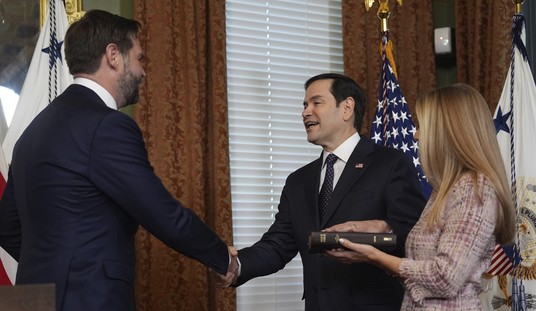The new civilian government in Pakistan has considered how to rid itself of the former military dictator Pervez Musharraf ever since it took control in February. Until now, the ruling coalition’s internal divisions have kept the president safe in office — but that may have changed. Reports that Nawaz Sharif and Prime Minister Yousef Gilani’s party leader may have reached an agreement on reinstating judges Musharraf sacked and on impeachment proceedings have caused Musharraf to cancel a visit to China for the Beijing Olympics:
Local newspapers citing unnamed sources reported Wednesday that the ruling party leaders — who have fallen out among themselves in recent months — had reached a consensus Tuesday on what steps to take to oust Musharraf.
Dawn, one of Pakistan’s leading English-language papers, reported that the two main parties had agreed to formally request that Musharraf step down and impeach him through parliamentary measures “if he did not oblige.”
Party officials declined to comment on the reports about the meeting between Asif Ali Zardari, head of the largest coalition party, and former Prime Minister Nawaz Sharif, who heads the second biggest party.
“Asif Ali Zardari and Nawaz Sharif at Tuesday’s meeting discussed the issue of restoration of judges and other political matters, but I cannot go into details,” said Farhatullah Babar, a Zardari party spokesman.
For many Pakistanis, the coalition government will be seen as a failure if they don’t rid themselves of Musharraf. The former dictator is deeply unpopular in Pakistan, and his political party paid the price in the last parliamentary elections. They can offer him no protection from impeachment if the PPP and PML-N combine to force him out. Musharraf has insisted he will not resign the post which he sacked the judges to gain, but he may have no choice.
What will that mean for the war? It will put the military in further disarray, and it might unleash elements within the ISI that Parliament will find difficult to control. Ambassador Said Jawad of Afghanistan told me in our interview that he believes the Gilani government wants to fight terrorism but doesn’t have the capability to do so, and removing Musharraf would at least temporarily make it even more difficult.
In the long run, though, the civilian government has to take control of both the military and the intelligence services if Pakistan is to survive and to fight against terrorism. This could be a step in the right direction. Unfortunately, Sharif’s connections to radical Islamists and his pro-appeasement policies don’t give a great deal of confidence that the government will move rapidly towards control of their own sovereign territory.








Join the conversation as a VIP Member